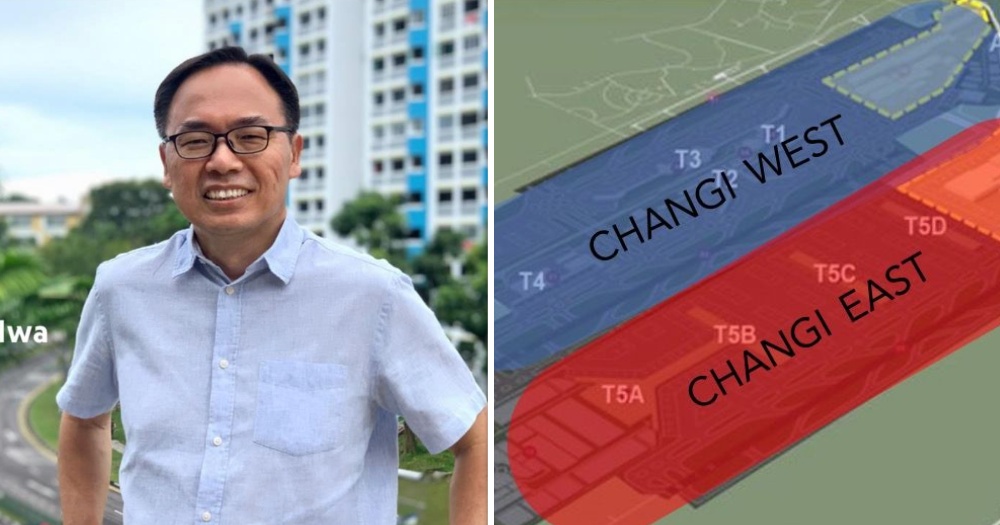Bukit Panjang SMC MP Liang Eng Hwa's speech in parliament on Sept. 1 focused on two broad aspects of jobs in Singapore.
Jobs Singaporeans want to do, and jobs they don't want to.
Jobs Singaporeans don't want
Liang talked about the reality of certain sectors in Singapore. For instance, he pointed out that 75 per cent of the construction labour force, or about 341,000 of 457,000, are foreign workers.
Liang acknowledged that Singaporeans might not want to do these jobs due to "low remunerations", work conditions and other factors.
He added that the combination of the low unemployment Singapore has, and the better jobs available meant companies rightly looked towards foreign labour to fill their ranks.
Covid-19 situation highlighting reality of labour situation
However Liang said the recent Covid-19 dormitory situation has pushed Singapore to confront just how many foreign workers it employs.
He brought up a 2010 review by the Economic Strategies Committee (ESC).
According to Liang, the ESC had recommended Singapore moderate the growth and manage the dependence of foreign workforce; through a phased increase in foreign worker levies ; and in tandem with funding support for productivity investments.
The rationale was that making low-cost labour too accessible would leave companies with little incentive to invest in productivity improvements.
Liang emphasised that he was not advocating cutting migrant workers number to a "certain lower level" as the implications for businesses and industries would be far reaching.
Which means less room to pivot.
Liang then asked that if nothing much could be done in the short-term, what could be achieved in the long-term?
Productivity improvements
Liang cited studies on construction productivity done by the Singapore Contractors Association in 2016, which detailed measures to improve productivity.
The report talked about how firms might be reluctant to invest in productivity measures as the nature of construction companies are almost always geared towards competitive pricing on tenders for contracts.
Liang suggested a reworking of the tender system for public construction projects. He called for greater weightage to tenderers who use more productive construction methods, and depended less on migrant workers.
Another possible move Liang suggested was to identify firms that have invested significantly in productivity improvements and invite them early into the project to work with planners, architects and engineers on more efficient construction processes; with the goal of becoming less labour intensive.
On the demand side, Liang said Singapore can also do more to reduce the overall demand of migrant labour. Specifically, evaluating if some of the major construction projects should go ahead.
Changi Terminal 5
One project he highlighted was Changi Terminal 5.
Liang argued that air travel will most like be reduced even after Covid-19, and might never recover to previous levels.
He then asked if the T5 project should go ahead in this environment.
"Are our assumptions and parameters still valid in the new permanently changed setting? Are the risks now too high to go ahead with this massive investment?
Can we work within our existing 4 terminals, regenerate new value proposition and optimise with what we have instead? We can perhaps still go ahead with the new runway but do we need another terminal building?
I hope the government will review the decision. Such mega projects do also consume high numbers of migrant workers and crowd out the more urgent demand by other construction projects."
MOT recently stated that they were using the Covid-19 downtime to revamp the aviation infrastructure by developing a "three-runway system", and reviewing the layout and design of the upcoming Changi Terminal 5.
Jobs that Singaporeans want
Liang then addressed the issue of jobs that Singaporeans wanted. He laid out the rough barometers of how skilled foreign manpower has been perceived in Singapore.
"Our approach has always been to maximise the potential and opportunities for our local workforce and complemented it by allowing some external manpower to strengthen our competitiveness; to the extend it helps create growth and jobs for Singaporeans."
However like many MPs before him, he acknowledged that this was not business as usual.
Liang pointed out that in this type of recessionary economic environment, the slack that one sees in the labour market can be managed by the lever of external foreign manpower.
Basically, nudge employers to hire more locally available workers.
He commended the tightening up of EPs and S-Passes, saying these types of measures are a necessary step in response to the very weak labour market that Singapore is in today and the likelihood of rising local retrenchments in the months ahead, as the Jobs Support Scheme (JSS) tapers off.
Related story:
We deliver more stories to you on LinkedIn
Image from Liang Eng Hwa's FB and Changi Airport
If you like what you read, follow us on Facebook, Instagram, Twitter and Telegram to get the latest updates.
